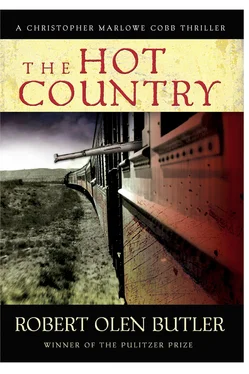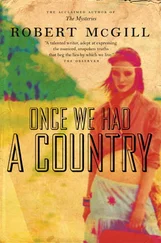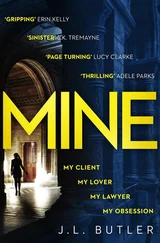I looked back to him as he began giving his name, “Doctor Tejeda Llosa,” I said, shaking his offered hand. “I am Gerhard Vogel.”
“Herr Vogel.”
“Do you have a practice in Vera Cruz?” I asked.
“Ah, no,” he said. “I am not a medical doctor. I am a doctor of philosophy. From the University of. . from abroad.” His eyes shifted away.
It was easy to read him: His degree was from an American university. Which meant he probably spoke excellent English. And he knew America and Americans. Which meant sitting next to me all the way to Mexico City wanting to talk, this man would be an ongoing danger. At least he would exhaust me from the effort to keep up my role. And he could easily get around to grilling me about my life in Germany, my job in Mexico. He seemed a nice old man and I regretted it, but as soon as his eyes returned to mine, I narrowed my own. He knew why.
I let the German accent slide lightly back into my Spanish. I was only a little angry at him. But it would be enough to make the rest of the trip silent. “I suspect your American English is much better than your German,” I said. I clicked my heels and said, “It was a pleasure to meet you, Doctor.” And I walked away.
I headed down the platform, toward the rear of the train.
There was nothing to be gained from following Mensinger into the restaurant. And this walking away was just the gesture of a German ass. The logical move. I had to protect my Gerhard from exposure. I finished my cigarette and paused and stubbed it out on the platform. I half turned. I pulled out my Elgin. I glanced back up the platform. The old man was gone.
I thought now to go to the Pullman car and find Mensinger’s berth and his bag and go through them. If I could look at the “ Papiere ” he was bringing to Pancho Villa, I might find enough confirmation to file a legitimate story.
And I had sense enough to stop myself. It was Gerhard who was making me consider this. I was too much Gerhard Vogel now, American secret agent. But I was not Gerhard Vogel. I was Christopher Cobb playing the part of Gerhard Vogel in a melodrama entitled Christopher Cobb, War Correspondent . No. That was wrong. In that melodrama I was Christopher Cobb playing the part of Christopher Cobb faking the surface identity of Gerhard Vogel. I would not do what Vogel did. In life and in any little drama I played inside it, I was still who I was behind the mask. I was a war correspondent. A newspaper reporter. A real one. Not a yellow-journalist hack who’d buy or steal or invent whatever he needed. Nor was I a spy. Neither in my life nor in the snatches of theater in my life was felonious breaking and entering a legitimate action of a newspaper reporter. I was a reporter. Not a spy. Even though it was true that something larger seemed to be at stake here. Something that had to do with my country.
I wavered again. Wars always had something larger at stake. I hadn’t faced this dilemma before because the major wars I’d covered had never directly involved my own country. In Nicaragua, faction against faction. In the Balkans, Bulgarians against Servians and Greeks and Rumanians. I am an American, but I am an American reporter, a war correspondent, standing apart, telling things as they are. And an American does his job with the integrity the job calls for. Other Americans do their own American jobs. Soldiers. Secret agents. I am not those other Americans. This is what I told myself.
Besides. There had to be a train guard to keep the second-class hoi polloi out of the Pullman. The chances of getting into Mensinger’s berth unobserved and finding his documents and discovering the Germans’ ultimate goal with Villa were a good deal less than the chances of queering the whole story by getting caught.
I turned my back on the Pullman, the volcano, the restaurant where Mensinger was eating a meaningless lunch, and I strolled along the platform, keeping tightly bound inside my head for a time, thinking there was a very long way to go before La Mancha. I needed to stay patient.
And now I was nearing the boxcar at the back of the train. The dozen or so Federales who were supposed to protect us had emerged. Boys mostly, a few men, a motley group of rurales and impressed farm boys with a couple of weathered noncoms to lead them, the ragged, unmotivated loose ends of Huerta’s army on dangerous, thankless duty. And they were watching the women. Half a dozen women, the wives — official or unofficial — of the half dozen actual men among the soldiers. Women typically traveled with Mexican armies — governmental and rebel alike — to forage for their men and cook for them and service their bodies and tend their wounds and hold their hands as they died and even bury them. Soldaderas . Along the platform these women were crouched over an improvised fire, cooking some unidentifiable meat for their men’s tortillas.
I turned away from them. Faced the volcano. Began to walk back toward it. When Bunky asked me what my plan was, I gave him the only answer I knew. Which was vague to say the least. I had this role, for now, of Gerhard Vogel, but I was wrong a few minutes ago thinking of this as a play with fixed personalities in a structured melodrama. This was all new. It was all improvised. I didn’t know what my lines were, what my future actions were. La Mancha was a very small place. How did I follow Mensinger unobserved? And then what? But I couldn’t think about any of that yet. To improvise, you must stay in this moment and then the next and the next.
And in this particular next moment, a small thing in the landscape presented itself to me. A wooden shack a hundred yards up the train track. The telegraph office. Once again I was tempted to tell this story as I now had it. But I’d been so absorbed by my journalistic scruples, I’d overlooked a far more immediate problem, which trumped all the rest: If I tried to file the story from any of these public railway telegraph stations, there was a serious chance it would never even arrive in America. A telegraph operator who knew enough English to get a sense of what he was sending — and the operators tended to know pretty good chunks of the languages they frequently worked with — such a man would tell the authorities and then I’d be grabbed off the train and not only would the story die but the event itself might then be drastically altered in ways I would never be privy to. Hell. Forget the translation. Given the Mexicans’ feelings for Americans right now, a telegraph about anything that was written in English and bound for the United States would go nowhere except into my arrest file.
I had no choice. I had to follow this thing all the way to Villa. And then somehow improvise myself across the border.
When the train was moving again and I turned my face to the long, flat run of the Central Plateau that would take us to Mexico City, I found the women in the car at the back of the train lingering in my head. And I thought of Luisa. If she had gone off to do what I suspected she had, she was a soldadera of quite a different sort. I wondered who she actually went to. Zapata in the south? He just didn’t seem much motivated to campaign outside his own state. Or Carranza the alleged thinker? Obregón the tactician? Most likely Pancho Villa. She would be drawn to him for the same reasons I suspected Mensinger and the Germans were drawn to him. He was the boldest rebel of them all, clearly the strongest of them at this point, the one most likely to make a radical change in favor of the vast majority of Mexicans, the poor and disenfranchised. She would go to him.
I realized I was in danger of violating what I’d resolved about staying in the moment, about not looking ahead. Even though this matter of Luisa Morales was simple curiosity; even though I had objectively, analytically assessed her next moves, not mine; even though I had not, in that analysis, ever actually summoned up a full-fledged image of her in my mind; even though I was convinced all of this about what I’d been doing was true, now that I’d come to a conclusion and was ready to set her aside, Luisa Morales slipped quietly into me in quite a different way, as if from the shadows beyond the lamplight in a dark street. She appeared vividly, in the flesh, and she was unarmed and her hair was tumbled about on her shoulders, and she looked me in the eyes, and her eyes were as dark as the barrel of a gun. And then she vanished. And so I found myself refusing to operate in this present moment, on this train between Vera Cruz and Mexico City, and instead I was looking far ahead, to the possibility that Luisa, as well, might be waiting at the end of this trail with Mensinger. And the consequent hot twist in my chest made me feel like an incurable damn fool.
Читать дальше












